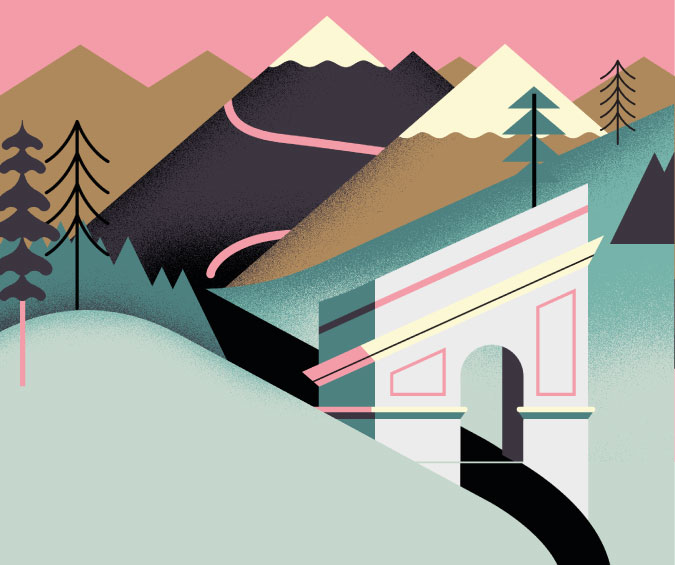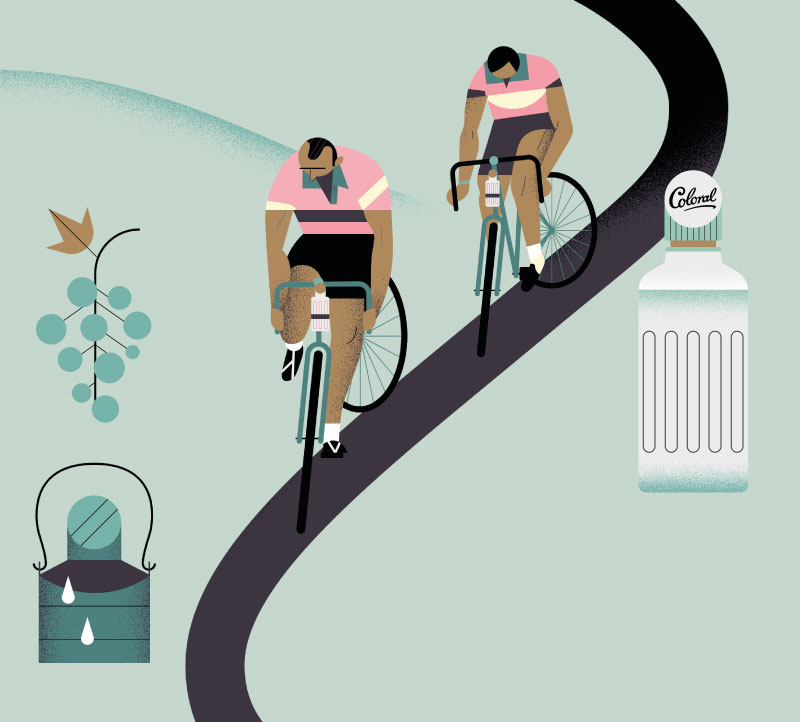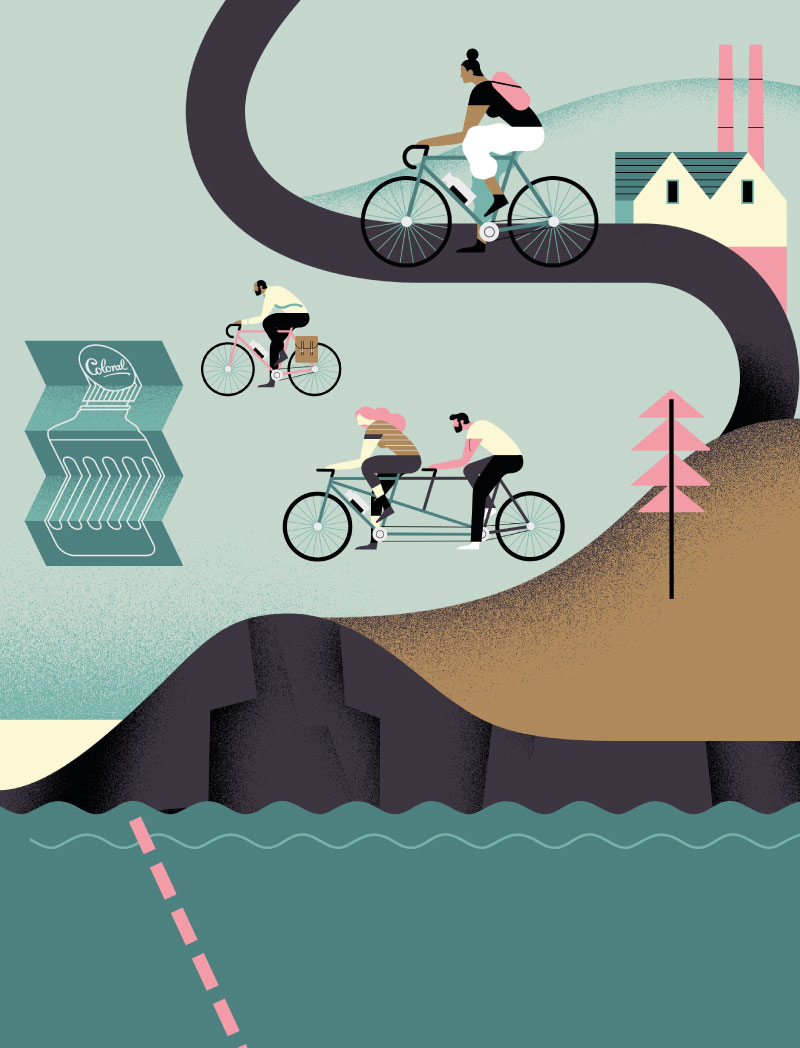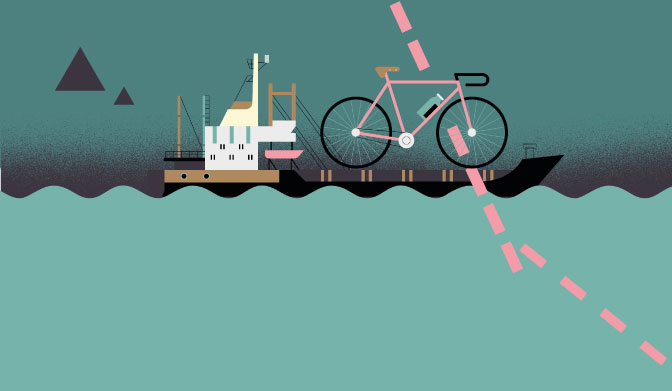Our Story

Over a century old, Le Tour de France has gained notoriety for being the toughest, most gruelling road race in the world. In 1903, of the sixty cyclists that started its first race, only twenty finished.
Covering a distance of 3,500km, cyclists travel through treacherous mountain passes of the rugged Pyrenees and snow-topped Alps, and end at the grand Champs-Élysées in Paris.

In the golden age of the 40s and 50s, a time of legends and bitter rivals, a metal 'bidon' was the container that riders used to carry water.
The most recognisable bidon was Coloral, a fluted alloy bottle with a cork stopper and tooled cap signed off with a scripted logo. Riders didn't just reserve them for bottling water, but also to preserve a simple blend of milk and sugar that kept energy levels high during competitions, and even wine when celebrating victories.
Despite its cult status, Coloral's production dwindled and ceased completely in the mid-1950s due to manufacturing pressures.

Driven by an enthusiasm for cycling and with a hope of reviving the bottle using modern day materials, we set out on a journey.
We delved into the British Library Company's archives to learn the history of Coloral, visited vintage bike festivals, steel spinning factories and observed the traditional methods used in the original production line.

The reengineered 14 fl.oz Coloral bottle is upgraded using food-grade stainless steel brushed for a muted finish.
Its robust design is lightweight and compact, and we've tweaked the dimensions to fit modern bottle cages.
It's been vacuum insulated to keep cold drinks cool and your hot drinks piping hot, and there's no plastic used in the flask or its packaging.
'
And we've teamed with Re-Cycle, who repurpose 165 tonnes of discarded bikes each year. Now, every Coloral bottle sold helps support the initiative, who work with partners to teach remote communities how to repair and maintain bikes, ensuring easier access to healthcare, education and clean, safe drinking water — an element that brings Coloral's purpose full circle.
Please join us for the ride.
Over a century old, Le Tour de France has gained notoriety for being the toughest, most gruelling road race in the world. In 1903, of the sixty cyclists that started its first race, only twenty finished.
Covering a distance of 3,500km, cyclists travel through treacherous mountain passes of the rugged Pyrenees and snow-topped Alps, and end at the grand Champs-Élysées in Paris.
In the golden age of the 40s and 50s, a time of legends and bitter rivals, a metal 'bidon' was the container that riders used to carry water.
The most recognisable bidon was Coloral, a fluted alloy bottle with a cork stopper and tooled cap signed off with a scripted logo. Riders didn't just reserve them for bottling water, but also to preserve a simple blend of milk and sugar that kept energy levels high during competitions, and even wine when celebrating victories.
Despite its cult status, Coloral's production dwindled and ceased completely in the mid-1950s due to manufacturing pressures.
Driven by an enthusiasm for cycling and with a hope of reviving the bottle using modern day materials, we set out on a journey.
We delved into the British Library Company's archives to learn the history of Coloral, visited vintage bike festivals, steel spinning factories and observed the traditional methods used in the original production line.
The reengineered 14 fl.oz Coloral bottle is upgraded using food-grade stainless steel brushed for a muted finish.
Its robust design is lightweight and compact, and we've tweaked the dimensions to fit modern bottle cages.
It's been vacuum insulated to keep cold drinks cool and your hot drinks piping hot, and there's no plastic used in the flask or its packaging.
'And we've teamed with Re-Cycle, who repurpose 165 tonnes of discarded bikes each year. Now, every Coloral bottle sold helps support the initiative, who work with partners to teach remote communities how to repair and maintain bikes, ensuring easier access to healthcare, education and clean, safe drinking water — an element that brings Coloral's purpose full circle.
Please join us for the ride.
Coloral supports

